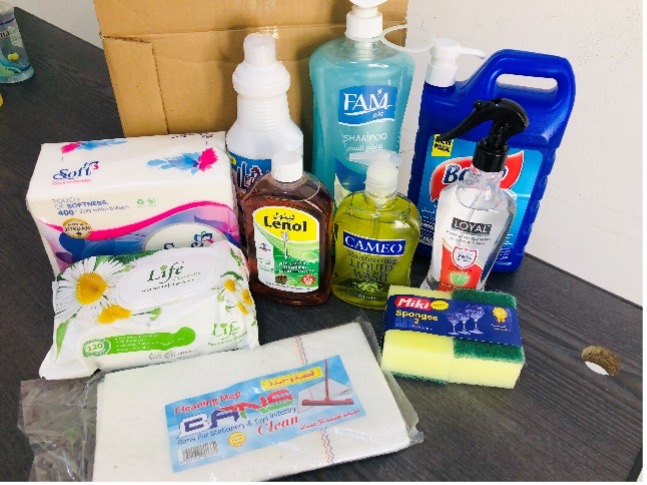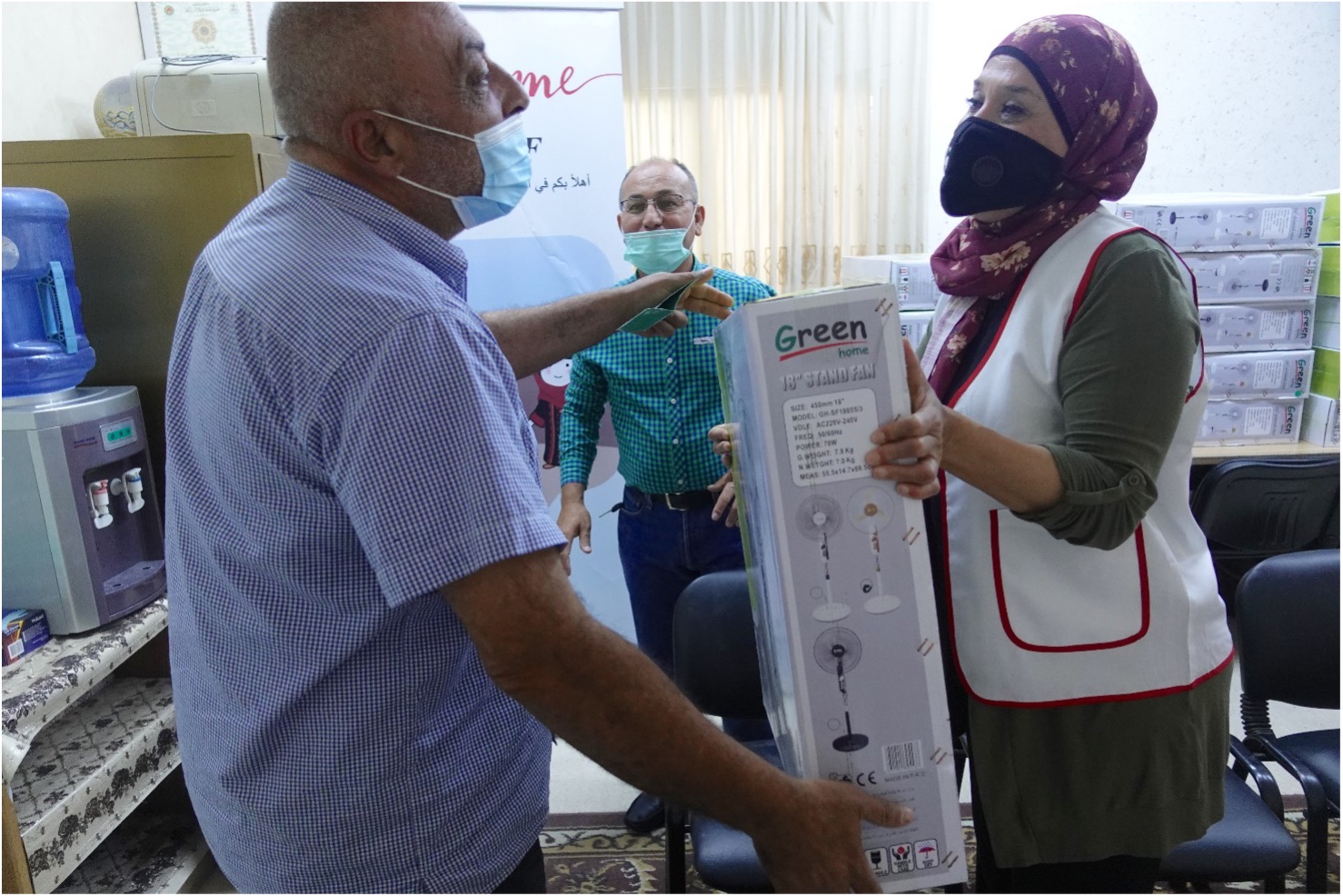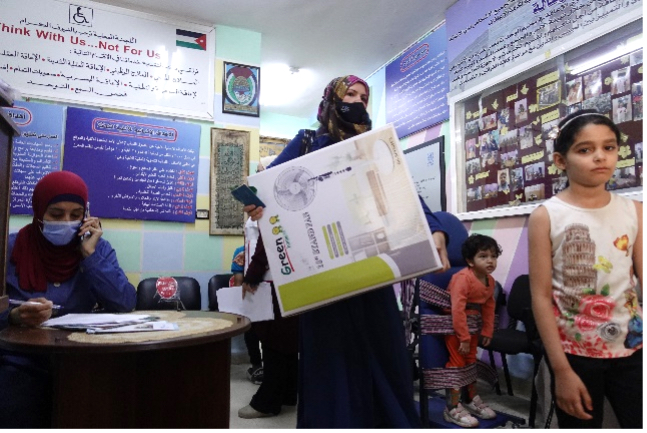Jordan: Our effort during Ramadan
.jpg)
Last year’s Ramadan was concluded in mid-May. The pandemic in the country was getting better at the time, and the confirmed cases per day were lowered from tens of thousands of cases to five hundred. This meant that if the pandemic didn’t get worse, people had a chance to get their pre-pandemic life back.
The COVID-19 pandemic has disrupted all our lives and has had an enormous impact on our work. Since last year, we tried our best to accommodate the changes the pandemic brought and adjusted our way of work to comply with the government’s restriction. In 2020, as the COVID-19 virus spread around the world, there seemed to be many months passed by without anything being done. Only until 2021, as the number of people getting vaccinated raised, and people getting infected lowed, did we seem to see the light at the end of the tunnel to return to normalcy.
For all Muslim families, Ramadan is a sacred and important month, not only do they practice fasting, but they also visit their families and friends more often than usual. Because of the pandemic, the Jordanian government imposed curfews to lower the possibility of people getting together. However, we still saw on the news that people violated the government’s policies and hosted parties after Ramadan, which resulted in the spread of the virus.
The daily expenses are much higher for Muslim families during Ramadan than for other months. Besides food costs, such as dessert, drinks, and elaborate meals, parents also use this time to buy new clothes for their children and decorate their houses for their families and friends’ visits.
These expenses create financial pressure on the families because the expenses are usually more than their monthly income. The pandemic had limited the events held during Ramadan, and greatly limited families and friends’ visits. This meant that families could save up the money, but for those who were already in struggles, the number of their income dropped much more than their expenses.
In the past, during Ramadan, we often saw a woman with young children sitting at the corner in the Capital Amman, with an empty basket by her side, hoping people could give them some food, bread, fruit, drinks, or spare change.
We saw this happen even more frequently this year. We even saw a woman bring their children to go over a dumpster and looked for valuable stuff from the big pile of garbage. In a dire situation like this, many people temporarily forwent their pride for survival.
In 2019, TFCF Jordan Branch Office invited all supporting families to come to have iftar with us. Iftar is an important tradition for Muslims and has significant religious and cultural meanings. However, after the event, we saw this tradition created unnecessary waste. Some children couldn’t finish their food and didn’t want to bring it home, which meant that the food could only go to waste.
As we were brainstorming how to move forward with our projects in 2020, the pandemic completely disrupted our original plan, and we couldn’t host Iftar for two years in a row.
Because the families’ expenses usually are high during Ramadan, we also delivered goods to families to alleviate their financial pressure and to improve their living quality. We discussed with our partners, learning about what is useful and a priority for the families to have. In the end, we narrowed the items to be cleaning supplies and fans.

Because of the pandemic and curfew, families spent much more time in their houses than before. The cleaning supplies make sure that the families’ houses are clean, and the fans could let the families keep cool from the hot weather in Jordan, which incentivized children to stay at home.
Because the Jordanian government was still very strict on gathering policy, we had to extend our goods-delivering period, to reduce the frequency of families getting too close to each other.
In the past, we used to stay at the same time and location to deliver goods to all the people we were serving. But now, we switch to invitation only and only invite 10-20 families at a time. While we are delivering the goods, we ask everybody to wear masks and keep their social distance, to make sure the safety and health of all of the families and our social workers.
According to the statistics done by World Bank, in the fourth quarter of 2020, the unemployment rate among 15-24-year-old people in Jordan was as high as 50%, and the overall unemployment rate in Jordan was 24.7%. The pandemic has forced many companies, restaurants, and stores to close, which impacted families who relied on working part-time in these places.
From last March to May, the Jordanian government imposed many lockdown restrictions, which greatly limited people’s freedom of movement. This meant that almost every industry was forced to shut down, which resulted in unemployment skyrocketing. Not only that, education was impacted as well, many students were not able to receive proper education for over a year. The main reason is that there usually were more children than learning devices, such as computers, tablets, and smartphones in one household.
Some of the families were having a hard time financially. They couldn’t pay for the internet costs. In this situation, many families could only accept the realities and wait for the day when the schools open again.

Many people are looking forward to the day to return to normalcy when they can meet with their friends and families without any restrictions and masks. As more and more people are vaccinated, we hope to see that we could finally move toward this vision.
No matter how the pandemic develops, or how the world changes, we will always stand with our families. We will try to understand the world from their perspectives and work with them to change the trajectory of lives.
If you want to support our work in Jordan, you can join us here.
